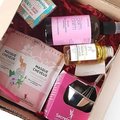In the world of organic cosmetics, a common misconception persists: "Organic cosmetics are expensive."
With current inflation and reduced purchasing power, this notion is coming back to the detriment of the organic sector.
Today, Cosmébio is going toshow how choosing organic cosmetics and the responsible brands marketing them is not necessarily synonymous with exorbitant costs. Let’s analyse this often mistaken perception.

Why Do We Think Organic Cosmetics Are Expensive?
Because of the competition from lower-quality products:
When you break down the composition of a conventional cosmetic, you realize that many of the ingredients used don’t offer much added value. Many products are blends consisting mainly of water and filler ingredients that create a pleasant texture and give the illusion of effectiveness. Silicones are a perfect example of this.
These ingredients are inexpensive, allowing brands that use them to sell cosmetics at low prices.
In contrast, organic brands replace silicones and other filler ingredients with natural or naturally derived ingredients, which leads to higher manufacturing costs.
Moreover, large brands produce vast quantities of products, which reduces their production costs, the cost per unit, and ultimately, the price displayed on the shelf.
These products still represent a significant portion of what’s available in stores.
Because constant promotions and sales impact our perception of price:
Frequent promotions and non-stop sales online and in stores can impact our perception of a beauty product's true cost. (Hello, Black Friday!) When a product is listed at its standard price, it may seem expensive simply because we've lost sight of the actual cost of items.
While organic brands can remain competitive by occasionally offering promotions, it is more often the large industrial groups are able to use promotions and negotiations with retailers, all adding up to better profit margins.
Because There’s a Hidden Cost to Conventional Beauty Products:
Buying a conventional health and beauty product goes beyond the listed price. We could consider things such as the pollution generated and potential health issues related to using petrochemically derived ingredients as "hidden costs". These are not always considered when making a purchase.
When you buy an organic cosmetic, the cost of quality ingredients, certification, and environmental protection measures are transparently included in the product's sale price.


Crédits illustration : Les Affranchis
The True Cost of Organic Beauty Products vs. Conventional Beauty Products
Comparing the price of organic beauty products with that of conventional non-certifed ones requires an in-depth analysis. Factors such as packaging, active ingredients, formulation, and even the size of the company all have an effect on the outcome of the price.
When discussing organic beauty products and cosmetics, it's important to mention the cost of certification! Certification is THE only true guarantee of transparency for the consumer. Organic beauty brands that choose this commitment do so to reassure buyers. They are investing in promoting a more virtuous cosmetics market rather than in their profits.
But what about brands that emphasize on the " naturality" of their product with no certification?
According to a study by Greenflex–Ademe, 71% of French consumers regularly or systematically make their purchasing decisions based on product composition. This drives conventional brands toward promoting "natural" products. As a result, uncertified products (often practing greenwashing or cleanwashing) competing for this market share and creating confusion for consumers.
There Are Organic Beauty Brands for Everyone!
In the world of organic beauty brands, there are many different companies offering a wide variety of products.
Whether you're looking for something affordable or enjoy splurging for higer end products, organic brands offer a range of products that respect the skin and the environment, with something for everyones needs or wishes. Whether you prefer a bit of luxury or more accessible products, organic cosmetics provide a broad selection to suit everyone and every budget.
Here are a few certified brands with attractive prices: Marilou Bio, SO BiO étic, Aroma-Zone, Pulpe de vie...
Carine Mudry, Founder of Ekia, Shares Her Experience
"I left a major conventional cosmetics company 10 years ago. One of the reasons was that I was shocked to discover the small portion of the product cost that was allocated to the ingredients, compared to what was spent on the packaging or marketing. When I transitioned to organic cosmetics, I discovered a parallel world where people are sincere, passionate, and put true meaning behind what they do.
Our products are often considered "expensive", so I want to try to explain why.
Part of the cost is obviously directly affected by certain choices made by the brand. For example, the fact that the products are formulated with a number of rare and technologically advanced active ingredients (hyaluronic acids, for instance, derived from green biochemistry are very costly; we also use active ingredients from plant stem cells, which are even more expensive) or the "performance" testing, which is a huge expense but absolutely necessary to verify effectiveness. All of this is will be reflected at some point in the product's price.
The preservation of organic products is also more complex, so they are often packaged in Airless containers, which are more expensive.
Contrary to what one might think, organic specialty stores do not make higher profit margins than supermarket retailers; in fact, they often have lower margins. This is because most actors in the organic market do this out of conviction. But being in a good location and hiring qualified staff comes at a cost.
To sum up, even though those in the organic industry are driven by conviction, everyone still needs to make a living and receive a fair price for their work. Quality has a price. This is a life I've chosen and fully embrace, but I can tell you it’s challenging—my brand is barely profitable, yet I’ve never chosen to reduce the quality of what we put in our products."
So, Are Organic Beauty Products More Expensive or Not?
After reading this article, you'll understand that it's not possible to say that organic beauty products are generally more expensive than conventional ones. Simply because the two are difficult to compare. As they say, you can’t compare apples to oranges! 🍎🍊
A product's pricing depends on many variables, and all of them would need to be considered to make a meaningful comparison.



